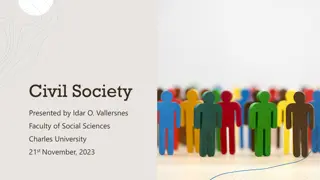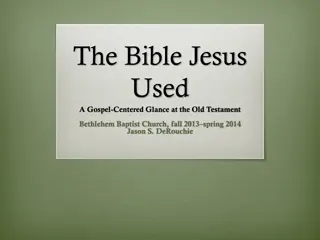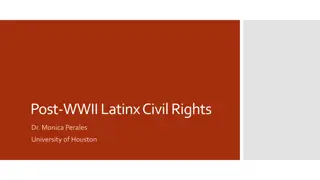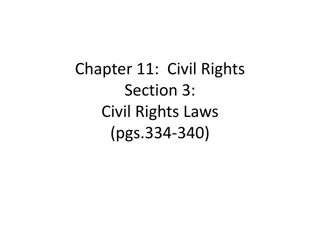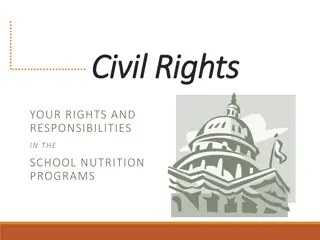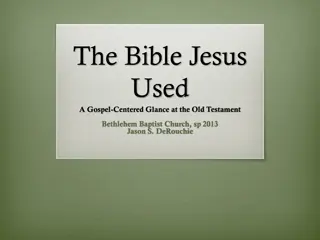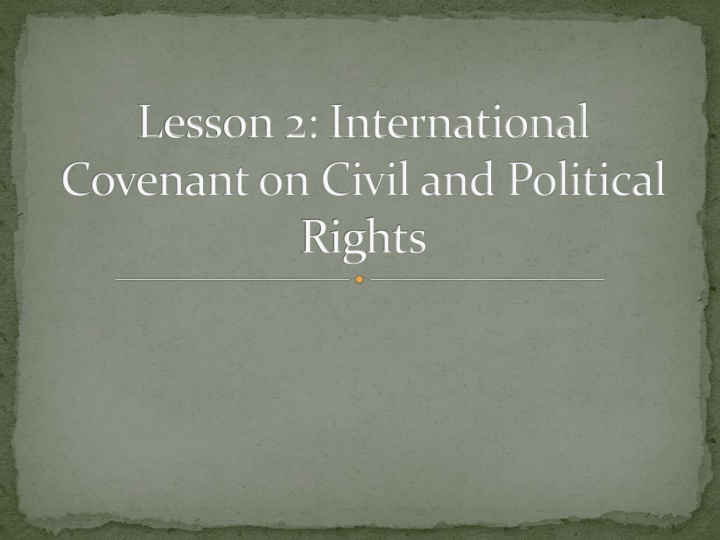
International Covenant on Civil and Political Rights - Key Rights & Terms
The International Covenant on Civil and Political Rights (ICCPR) establishes key rights such as self-determination, non-discrimination, equality, right to life, liberty, and freedom of religion and assembly. It also outlines important terms regarding torture, slavery, privacy, and participation in civil life. Explore the fundamental aspects of the ICCPR in this comprehensive lesson.
Download Presentation

Please find below an Image/Link to download the presentation.
The content on the website is provided AS IS for your information and personal use only. It may not be sold, licensed, or shared on other websites without obtaining consent from the author. If you encounter any issues during the download, it is possible that the publisher has removed the file from their server.
You are allowed to download the files provided on this website for personal or commercial use, subject to the condition that they are used lawfully. All files are the property of their respective owners.
The content on the website is provided AS IS for your information and personal use only. It may not be sold, licensed, or shared on other websites without obtaining consent from the author.
E N D
Presentation Transcript
Lesson 2: International Covenant on Civil and Political Rights
Lesson 2: Introduction The International Covenant on Civil and Political Rights (ICCPR) came into effect in 1976. Canada has been a State Party to the ICCPR since it first came into effect. Currently, there are 166 State Parties to the ICCPR. The ICCPR is part of the foundational documents of international human rights law, together with the International Covenant on Economic, Social and Cultural Rights and the Declaration of Human Rights.
Lesson 2: Key Rights & Terms of the ICCPR The key rights and terms created in the ICCPR are: The right to self-determination for peoples (article 1). The ability of peoples to freely dispose of their natural wealth and resources (article 1). Non-discrimination for reasons including: race, colour, sex, language, religion, political or other opinion, national or social origin, property, birth or other status (article 2). Equality among genders (article 3). Inherent right to life (article 6).
Lesson 2: Key Rights & Terms of the ICCPR The right to seek pardon or commutation if sentenced to death by the State (article 6). No one shall be subjected to torture or to cruel, inhuman or degrading treatment or punishment. (article 7). Prohibitions on slavery and servitude (article 8). The right to liberty and security of persons (article 9). Arrest rights and the right to know the charges brought against a person arrested (article 9). Rights for those who are detained by the state (article 10).
Lesson 2: Key Rights & Terms of the ICCPR The right of movement and choice of residence (article 12). Equality and recognition before the law (articles 14, 16). Trial rights and procedural guarantees (article 14). No ex post facto application of the law (article 15). Freedom from arbitrary/unlawful interference with privacy, family or correspondence (article 17).
Lesson 2: Key Rights & Terms of the ICCPR Freedom of thought, conscience and religion (article 18). The right to hold opinions (article 19). The right of peaceable assembly (article 21). Freedom of association (article 22). Marriage and family rights (article 23). The right to a nationality for children (article 24).
Lesson 2: Key Rights & Terms of the ICCPR The right to participate in civil life, especially through voting and public service (article 25). Rights of minority groups to express and participate in their cultural groups and practices (article 27).
Lesson 2: First Optional Protocol to the ICCPR The First Optional Protocol to the ICCPR establishes the ability of individuals to bring qualifying claims against ICCPR State Parties to the Human Rights Committee (HRC), based on alleged violations of the ICCPR. There are currently 113 State Parties to the First Optional Protocol, including Canada. Complaints may only be brought against a State that is a State Party to the First Optional Protocol itself, even if a State is already a party to the ICCPR. A complaint may be brought against the HRC against a State Party when the complainant has exhausted all applicable domestic remedies for the alleged violation. In order to be eligible for a ruling by the HRC, the complaint cannot already be pending before another domestic or international judicial body. In order to be eligible, the subject matter of the complaint must be within the scope of the ICCPR and the author must not be anonymous.
Lesson 2: First Optional Protocol to the ICCPR If these elements are not met, the HRC may deem the complaint to be inadmissible. The HRC may also examine the merits of the complaint and find that the merits of the complaint do not constitute a violation. On the other hand, the HRC may find that there is a violation of one or more terms of the ICCPR. In this event, it issues a finding explaining its reasons and requesting that the State Party in question provide periodic updates on the situation that led to the complaint and the measures taken to remedy it. The HRC may also state that compensation to the complainant is appropriate, although this order cannot be enforced in a domestic court and the HRC does not state amounts of compensation that would be appropriate.
Lesson 2: Second Optional Protocol to the ICCPR Under the terms of the Second Optional Protocol to the ICCPR, ratified in 1989, State Parties agree to abolish the death penalty within their jurisdictions. There are currently 72 State Parties to the Second Optional Protocol, including Canada.
Lesson 2: Institutions of the ICCPR The principle organ of the ICCPR is its Human Rights Committee (HRC). The HRC has several functions. Under the terms of the ICCPR, State Parties are required to file periodic reports with the HRC in regards to their compliance with the ICCPR s terms. After the submission of these reports, the HRC then evaluates them, making comments and asking questions of the submitting State Party. Once this process is completed, the submitting State Party may provide additional information and responses to the HRC squestions.
Lesson 2: Institutions of the ICCPR Additionally, under the terms of the First Optional Protocol to the ICCPR, the HRC has the ability to receive qualifying individual complaints regarding State Party conduct, receive responses from the State Party, and where it deems appropriate, decide whether a violation has in fact occurred. Since the First Optional Protocol went into effect in 1976, the HRC has received and decided on many complaints regarding developed and developing State Parties, and across a wide variety of complaint topics under the ICCPR s terms. Canada has come before the HRC on a variety of complaints, and has been found to be in violation of the ICCPR in cases that involved immigration issues, indigenous rights issues, and language issues.
Lesson 2 Summary In this Lesson, you learned about the ICCPR and its key rights and terms. You then learned about the First Optional Protocol and its grant of the individual ability to complaint to the HRC on allegations of ICCPR term violations. You also learned about the abolition of the death penalty in the jurisdiction of State Parties to the Second Optional Protocol to the ICCPR. Finally, you became familiar with the primary functions of the HRC as it relates to State Party interaction.


